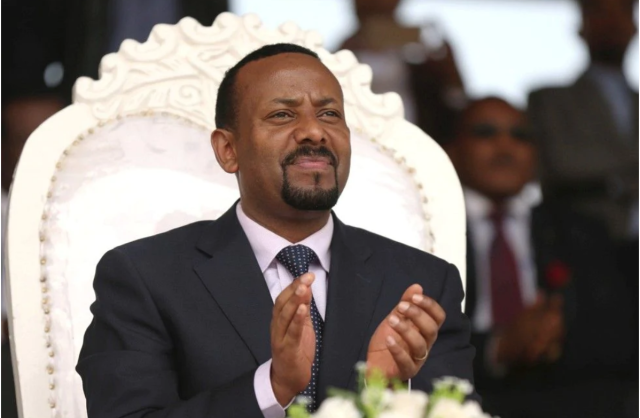 Prime minister Abiy Ahmed attends a rally during his visit to Ambo on April 11. (Photo: Tiksa Negeri/REUTERS)
Prime minister Abiy Ahmed attends a rally during his visit to Ambo on April 11. (Photo: Tiksa Negeri/REUTERS)
The Washington Post
Perhaps the biggest surprise of the year came in Ethiopia, a country of 100 million people and a solidly authoritarian past. Its jails teemed with political prisoners and journalists, and regime critics knew that the safest place was in exile. Since overthrowing a military regime in 1991, the ruling Ethiopian People’s Revolutionary Democratic Front (EPRDF) monopolized power, profited from corruption, crushed its critics and blatantly favored the privileged ethnic Tigray minority.
But then, in March, tensions within the EPRDF produced something of an internal coup, and the party chose Abiy Ahmed as its new chairman, making him prime minister and the first member of the oppressed Oromo minority to hold the post. His appointment ushered in changes that Ethiopians at home and abroad could hardly believe.
Abiy freed thousands of political prisoners. He released jailed journalists — not a single one remains in prison, according to the Committee to Protect Journalists — and ended a decades-old war with neighboring Eritrea. The euphoria that gripped Ethiopia, as opposition leaders started returning home, spread to the diaspora. Abiy met with a hero’s welcome during his travels to exiled Ethiopian communities. In a meeting with Ethiopian dissidents in the United States he explained his vision: The next step, he declared, is a “democratic election.”
Abiy and Ethiopia face enormous challenges. Economic turmoil and ethnic conflict could yet lie ahead. But the prime minister also enjoys an extraordinary amount of support. His push for fair elections, his tolerance of dissent, and his selection of women as cabinet officers, the head of the Supreme Court, and ceremonial president all signal a more democratic future.
—
Join the conversation on Twitter and Facebook.

























